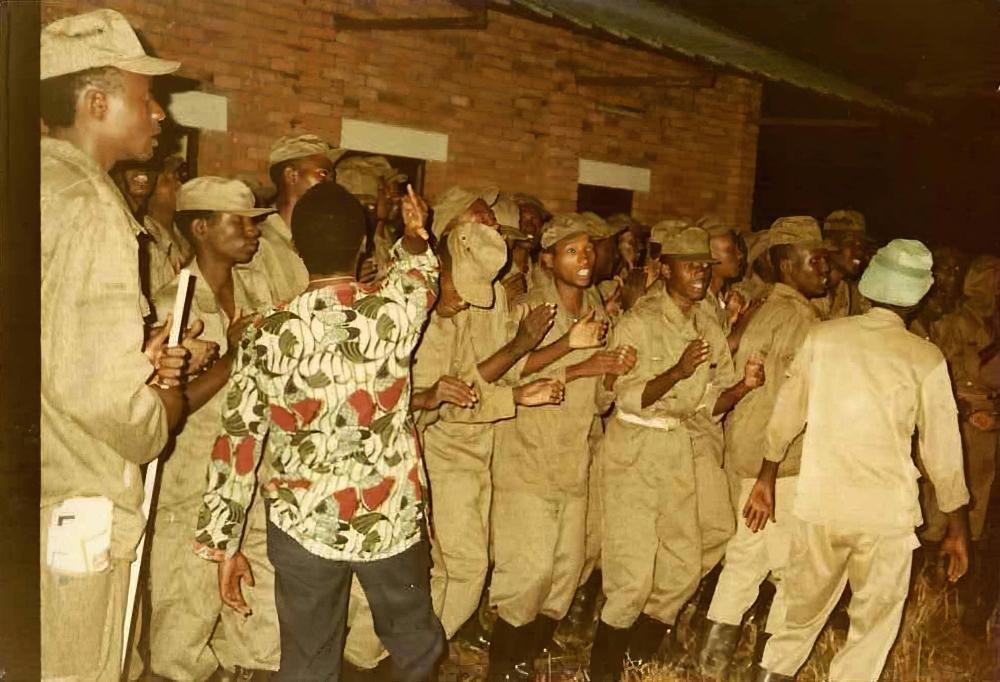Peter Ruti
Africa-Press – Rwanda. In the previous article in this series, we witnessed how the racist ideology against the Tutsi reappeared in speeches of officials of the Habyarimana regime and in the national press. RPF was portrayed as a reincarnation of the Inyenzi raids of the 1960s and a movement of Tutsi monarchists who did not accept the 1959 revolution.
The regime in Kigali denounced the aggression of the feudalists supported by Uganda. In this piece, the real cause of RPF struggle, which began on October 1, 1990, will be realised as we move forward.
Reaction of the international community
Uganda which was considered as an aggressor or at least as the unwavering supporter of RPF rejected these accusations. It made so many gestures of goodwill by responding to initiatives of mediation. It accepted the UN mission of military observers at its border with Rwanda. It received a fact-finding mission from the European Parliament whose conclusions exonerated Uganda from all accusations made against it by Rwanda.
During the entire duration of the war, President Yoweri Museveni’s attitude remained ambiguous. He understood the cause of RPF.
The cries of Habyarimana regime to some in the international community for help led to Zaire (today’s DR Congo) to send soldiers to help the Kigali regime. The Zairean army did not stay for long in the country. They met trouble at the war front against the RPA (Rwanda Patriotic Army).
Zairian soldiers arrested at the war front were among those who portrayed a very positive image of the RPF after their release. They referred to RPA as an army that was convinced about the cause it was defending, very disciplined, very organised. The commander of the Zairian contingent hailed the RPF continuously because even when he was in the enemy camp, he was treated with all honours due to his military rank. The information could have made President Mobutu have a different view of RPF.
Belgium sent a contingent to Rwanda with the mission of repatriating its citizens who wished to leave the country. Their stay in Rwanda aroused very lively debates which led to their departure at the end of October 1990. However, Belgium sent several high-level missions that made sensible suggestions, which though disturbed the Kigali regime.
According to Belgium, overcoming the crisis depended on the Rwandans themselves and mediation efforts had to be entrusted to Rwanda’s neighbours and the Organisation of African Unity, supported by the international community. In the end, it was that approach that was pursued.
At the beginning of the conflict, President Habyarimana requested France to help a French-speaking country that had been attacked by English-speaking feudalists supported by a foreign country. France sent a contingent to Rwanda. It was baptized Opération Noroit. The contingent stayed in Rwanda until December 1993. It was an additional military force intended to back up French soldiers who were already in Rwanda in the name of military cooperation. The French military agents stayed in Rwanda until the beginning of the Genocide.
France gave several reasons for maintaining its military presence and multiform cooperation with the Kigali regime. These were: to ensure the protection of the French citizens and other foreigners, to contribute to the democratisation of the country, to defend a Francophone country and the Hutu majority attacked by a Tutsi minority from a foreign country. France strangely adhered to the concept of democracy practised by the Kigali regime.
The ethnic majority and minority were identified with the political majority and minority, even though the latter implied individual choice and membership in a political program of one’s choice.
Even without participating in battle as the French officials declared, the presence of the French contingent and France’s support comforted the regime in its positions. They trained and equipped the army and the Interahamwe militia.
From the beginning, many organisations, many French and other foreign personalities criticised Paris’s unfailing support to a regime whose dictatorial and racist tendencies were openly proclaimed by an extremist press and the high-ranking officials of the government.
Source: The New Times
For More News And Analysis About Rwanda Follow Africa-Press






